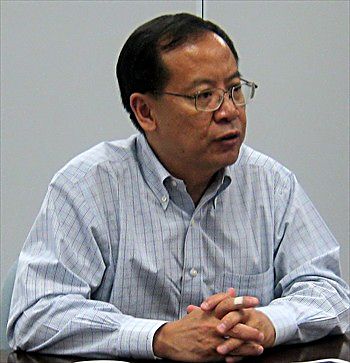
Translated by Andrew Vanburen from a Chinese-language piece in Dongfang Daily
HONG KONG investors are enjoying a much better market than their mainland neighbors.
But they would do well to keep in mind why one shouldn't wish for something too hard.
So what does the rising tide of mainland money in particular into Hong Kong mean for the market?
More importantly, what does in influx of “hot money” mean for the ordinary investor in Hong Kong and especially the property sector?
Hong Kong's currency has since 1995 faced several instances of sudden capital inflows that have challenged the nearly three-decade old peg to the US dollar at around 7.8 hkd.
Thanks to the Special Administrative Region’s considerable foreign exchange reserves, a strong economy and concerted efforts by the Hong Kong Monetary Authority (HKMA), the SAR has been able to keep its head above water very admirably during these various assaults.
But it is the rising tide of money from mainland investors playing the Hong Kong bourse and especially property firms that has most market watchers the most interested.
For many PRC businesses with listed assets or affiliates in Hong Kong, most see the development in a positive light.
Wang Xinxin, assistant to the chairman of Zhengzhou-based real estate play Qianyan Development, saw the flow of hot money as an opportunity.
“The property market is not showing strong growth trends of late, and all developers seem to be struggling to raise funds amid intense competition as profits per unit sold are continuing to tighten.”
She said that most investors and property sellers look back at the “overheated” real estate market in two years ago in Zhengzhou – Henan Province’s capital – with a certain sense of nostalgia and fondness.
“Those days were characterized by buyers merely settling on a property, a huge chunk of cash would change hands and the deal would be done. I remember we sold 200 units in one new development in the blink of an eye... all paid for in cash... with a lot of the activity generated by speculative buying activity from a Wenzhou-based investment group.”
But for those engaged in the property sector in many mainland markets, buying frenzies like these with investors flush with cash have for the most part been stymied these past two years by macroeconomic measures from Beijing meant to slow property price inflation.

Wang of the Zhengzhou-based property developer added: “I was recently on a leisure trip to Hong Kong and saw for myself all the hot money flowing into Hong Kong and how it is really breathing a lot of new life into the SAR’s property market in particular.
“Those of us involved in real estate in the PRC look on to this current trend in Hong Kong with great envy.”
But it’s not just executives and sales staffs at property firms that get excited when hot money comes to town.
Zhengzhou resident Zhang Xiangling is a seasoned investor.
With China’s A-share markets struggling mightily this year, she suffered a lot of losses in share trading.
“By comparison, Hong Kong’s bourse looks a lot better and I’ve been thinking seriously about just shifting all my A-share investments into Hong Kong stocks. I’ve already entrusted a friend in Hong Kong to help me get set up in that market,” Ms. Zhang said.
Helping matters tremendously for mainland investors with an eager eye on Hong Kong is the fact that the US dollar currently buys just 6.2 yuan.
Just five short years ago, the greenback bought more yuan than hkd, but with the Hong Kong currency pegged at around 7.8 hkd to the dollar, the renminbi has become an increasingly strong currency on a relative basis.
That makes buying shares in Hong Kong, denominated in the local currency, a much more affordable and potentially profitable prospect for PRC investors.
Last year and for much of this year, Hong Kong investors complained of a lack of liquidity and a struggling share market.
Now, with the rising tide of mainland money flowing across the de facto border, the well known phrase comes to mind...
Don’t wish for something too much.
Because you just might get it.
See also:
What The Big Boys Are Buying In China
PARTY TIME: Top Five PRC Earners
POINTING FINGERS: ‘Immature’ Investors At Fault In China?
ONE MAN’S TRASH... Time To Look At ‘Garbage’ A-Shares?







